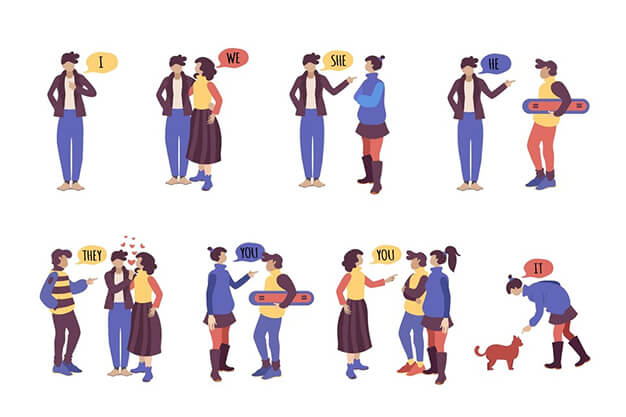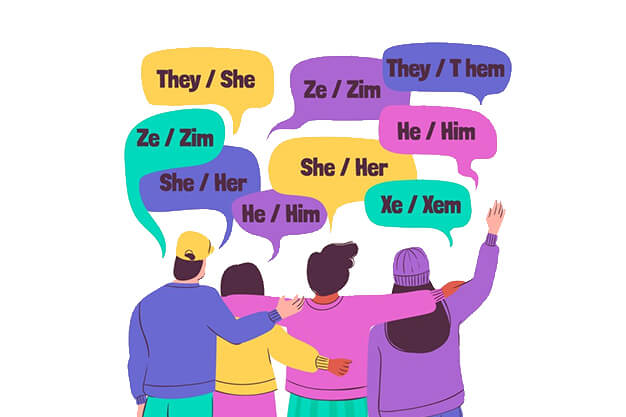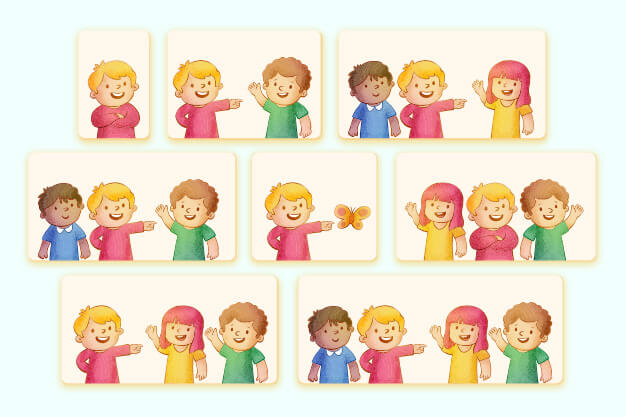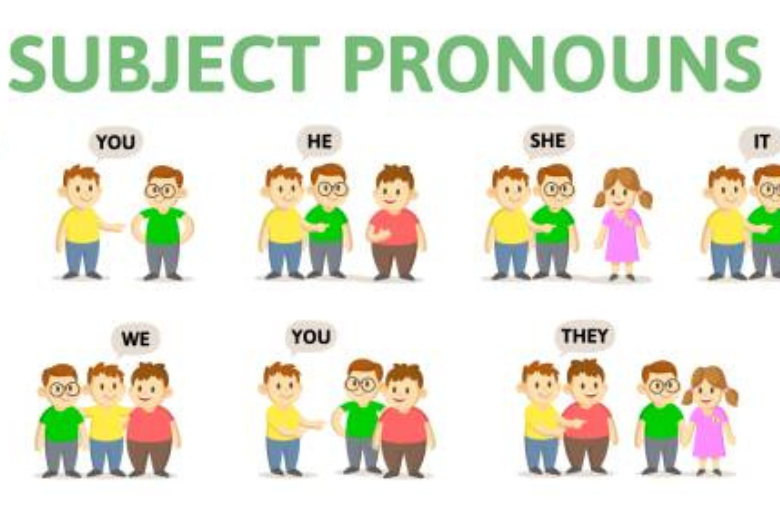Consider the situation: You are making plans to hang out with your friend when suddenly you pause mid-sentence and start wondering if you should say “me” or “I”? Well, you are not alone. “Me” vs “I” – These two pronouns may seem simple but create a lot of confusion because they are similar in meaning.
In this article, we will break down the differences between “Me vs I” and tell you when to use each pronoun correctly in a sentence. So read on.
What is a Pronoun?
As you probably already know, pronouns in English grammar are words that take the place of nouns or noun phrases in a sentence. Pronouns are used to avoid repetition of the same nouns and noun phrases over and over again. For instance, consider this sentence:

“Sarah went back to Sarah’s house because Sarah forgot Sarah’s car keys inside the house.”
Here, the word ‘Sarah’ is repeated over and over again, which makes the sentence sound awkward. To avoid awkward repetition like this, we use pronouns. Now consider the sentence below:
“Sarah went back to her house because she forgot her car keys inside the house.” Now that the repetitions have been removed, the sentence is clearer and more concise.
Now that you have some idea about the role of pronouns in a sentence, you should note that there are several types of pronouns. These are as follows:
- Personal Pronouns: Refer to specific people or things. (e.g., I, you, he, she, it, we, they)
- Possessive Pronouns: Indicate ownership. (e.g., mine, yours, his, hers, ours, theirs)
- Reflexive Pronouns: Refer back to the subject of the sentence. (e.g., myself, yourself, himself, herself, itself, ourselves, yourselves, themselves)
- Relative Pronouns: Introduce a relative clause. (e.g., who, whom, whose, which, that)
- Demonstrative Pronouns: Point to specific things. (e.g., this, that, these, those)
- Indefinite Pronouns: Refer to non-specific things or people. (e.g., anyone, everything, nobody, each, few, many)
- Interrogative Pronouns: Used to ask questions. (e.g., who, whom, whose, which, what)
Personal pronouns are the most common pronouns that we come across every day, be it in a written format or a spoken conversation. Let’s explore personal pronouns further.
What is a Personal Pronoun?
A personal pronoun is a short word that is used as a substitute for the proper name of a person while speaking or writing. These pronouns help us to avoid awkward repetitions of personal nouns in a sentence. Personal pronouns are divided into several groups on the basis of following factors:
- Person:
- Number:
- Case:
One of the most common confusions that people face while using pronouns is the difference between “me” and “I.” In the next section, we have provided a clear explanation of the difference between “me vs I.”
Me vs I: Definition
We will start by defining the two pronouns. “Me” is an object pronoun used as the object of a sentence or clause. It refers to the person that receives the action of the verb. On the other hand, “I” is a subject pronoun used as the subject of a sentence or clause.

It refers to the person performing the action of the verb. To put it simply, “me” is used when someone is doing something to you, and “I” is used when you are doing something.
To better understand this concept, let’s look at some examples:
1. “She gave me a gift.” In this sentence, “me” is used as the object pronoun because the person (she) is doing something (giving) to you.
2. “I bought a new car.” Here, “I” is used as the subject pronoun because the person (I) is performing the action (bought).
3. “He and I went to the movies.” In this sentence, both “he” and “I” are subject pronouns because they both perform the action of going to the movies together.
4. “She asked me to help her with the project.” Here, “me” is used as the object pronoun because the person (she) is asking for your help (doing something to you).
Me Vs. I: Common Mistakes
Now that we have a basic understanding of the difference between “me” and “I,” let’s look at some common mistakes and how to avoid them when using these pronouns.

Using “me” instead of “I” as the subject of a sentence:
This is a common mistake that is often made in spoken language. For example, “Me and my friends are going to the beach.” In this sentence, “me” is used instead of the correct pronoun “I.” The correct way to say this sentence is, “My friends and I are going to the beach.” Always remember to use “I” as the subject of a sentence.
Using “me” instead of “I” after a verb:
Another mistake that is commonly made is using “me” after a verb when it should be “I.” For example, “The teacher gave the award to my friend and me.” In this sentence, “me” is used instead of the correct pronoun “I.”
The correct way to say this sentence is, “The teacher gave the award to my friend and I.” This is because the pronoun is the object of the verb “gave,” and “I” is the correct object pronoun to use.
Confusing “me” and “I” in compound subjects and objects:
Sometimes, it can be confusing to know which pronoun to use when there is a compound subject or object in a sentence. A compound subject is when there are two or more subjects in a sentence, and a compound object is when there are two or more objects in a sentence.

For example, “My sister and I went to the beach.” In this sentence, “I” is the correct pronoun to use because it is the subject of the sentence. However, in a sentence like, “She invited my sister and me to her birthday party,” “me” is the correct pronoun to use because it is the object of the sentence.
A helpful tip to remember is to remove the other person in the compound subject or object and see which pronoun makes sense. For example, “My sister and (I/me) went to the beach.” The correct sentence would be, “My sister and I went to the beach.”
Using “myself” instead of “me” or “I”:
Another common mistake is using the reflexive pronoun “myself” instead of “me” or “I.” A reflexive pronoun is used to refer back to the subject of the sentence or clause. For example, “I will call (myself/me) later.” The correct pronoun to use in this sentence is “me” because it is the object of the verb “call.” A reflexive pronoun should only be used when the subject and the object are the same person, for example, “I hurt myself.”
A Look At Some Other Common Pronouns
Now that we have a better understanding of when to use “me” vs. “I,” let’s explore some other common pronouns and how to use them correctly.
1. “Myself” is a reflexive pronoun and should only be used when the subject and the object are the same person. For example, “I made the decision myself.”
2. “You” is a subject pronoun and can also be used as an object pronoun in the singular form. For example, “You are my best friend” (subject) and “She invited you to her party” (object). However, in the plural form, “you” is only used as a subject pronoun, and the object form is “you all” or “y’all.”
3. “He,” “she,” and “they” are all subject pronouns and should be used as the subject of a sentence or clause. For example, “She is coming to the party.” In the object form, they become “him,” “her,” and “them.” For example, “The teacher gave them a homework assignment.”
4. “We” is a subject pronoun and should be used as the subject of a sentence or clause. For example, “We are going on vacation together.” In the object form, it becomes “us.” For example, “The teacher asked us to present our project.”
Final Thoughts!
Thus, understanding the differences between “me” vs “I” and other pronouns is essential for effective communication. By following the guidelines and examples provided in this comprehensive guide, you can improve your usage of pronouns and avoid common mistakes.
Always remember to use “I” as the subject of a sentence, “me” as the object, and “myself” only when the subject and object are the same person. With practice, using pronouns correctly will become second nature, and your communication skills will be greatly enhanced.
MORE FOR YOU:
- Unveiling The Power Of Punctuation Marks In English
- What Are The Types Of Sentences In English Language With Examples
- Cleaning Up Your Sentences: How To Identify And Eliminate Dangling Modifiers
